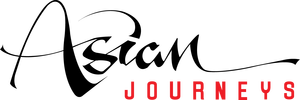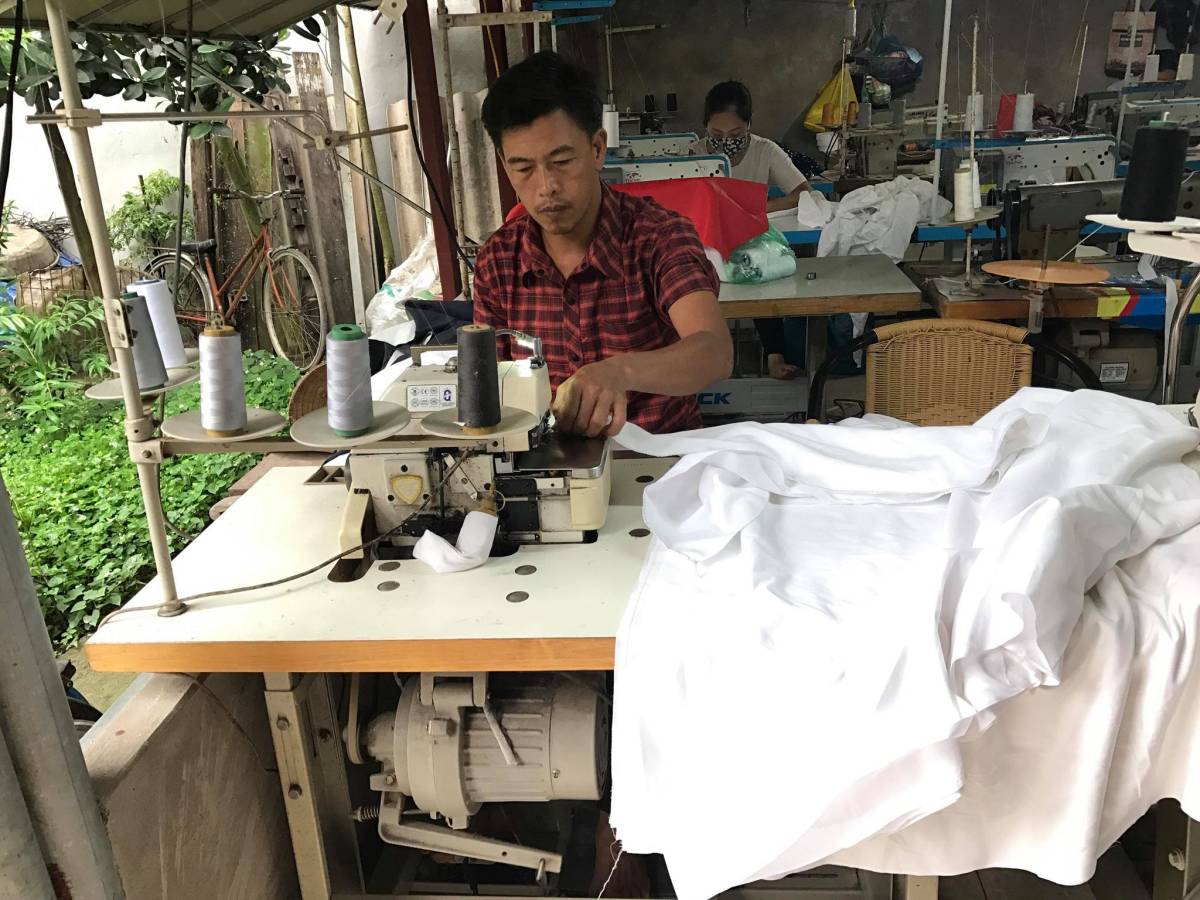From Condemned to New-born, The Evolution of Linens For Life
Linens For Life transforms bed linen into pajamas, swaddling clothes and reusable diapers
Irene Millar Interviews Stefan Phang, Global Director, Sustainability & Creating Shared Value at Diversey, Inc
I first reported on the Linens For Life programme in 2019. Since then the global pandemic has created hardship for many people across the world. Linens For Life has been a life saver during this period for thousands of people.
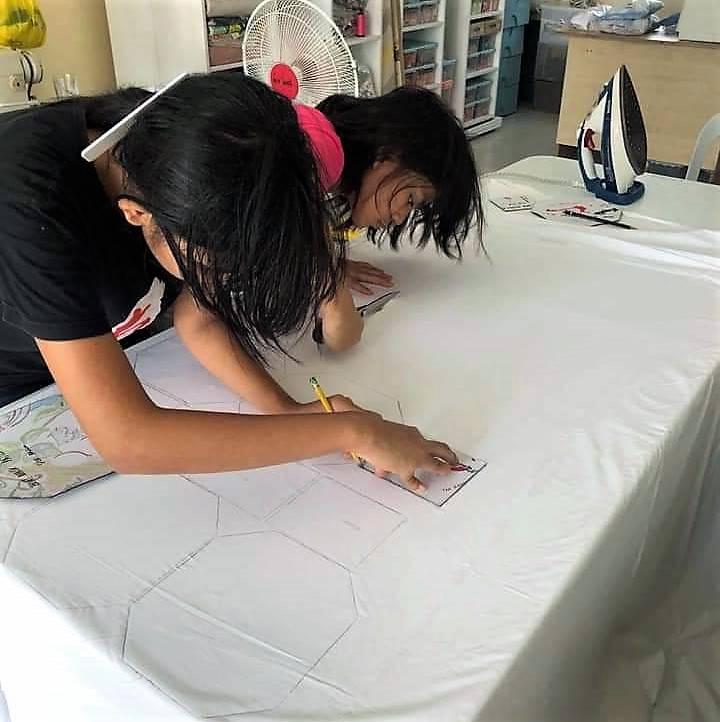
Stefan Phang is the founder of Linens For Life (L4L) project which operates through Diversey, a sustainable cleaning and sanitation product provider to the hotel industry. Confronted with the disparity in wealth and living conditions during a trip to Cambodia nearly 20 years ago, Stefan has made it his life’s mission to help pull as many people out of poverty as possible.
L4L began in the Philippines as a means to help communities impacted by natural disaster. Initially large bed linen was used as stretchers to carry the injured to safety and as burial shrouds to offer some dignity to those who had lost their lives. After taking care of the injured and dead, the linen was employed to take care of the living as privacy screens for toilets, ground sheets and towels.
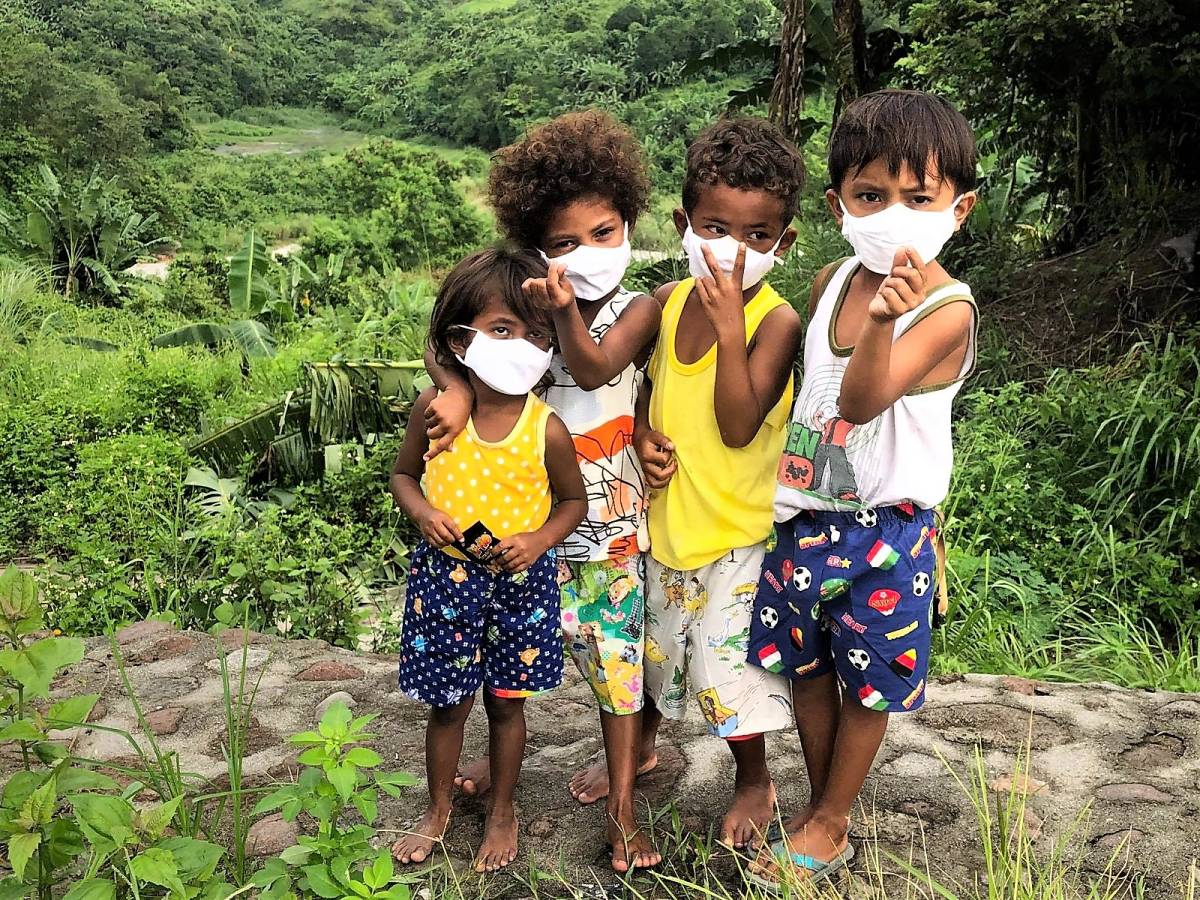
Stefan had previously developed a business model for hotel soap waste, which he replicated for linen. His model starts with identifying a hotel waste stream and then working with an NGO in deprived communities to train local people to upcycle the waste product into a saleable product with a ready market. This model alleviates the waste going to landfill and creates a sustainable income stream for local families.
Hotel linen makes a hefty contribution to landfill as supplying guests with crisp, white bed linen requires hotels to replace their linen approximately every 55 washes. In hotels operating at normal occupancy levels this could result in, what is termed as condemned linen, being replaced every 9 to 12 months.
Stefan recognised that alongside the disaster relief efforts, there was also an opportunity to create a positive economic impact from condemned linen. By providing sewing machines and training, together with the donated linens, disadvantaged people were able to transform the linen into sellable items such as bags, aprons and school uniforms to create a sustainable income to support their families.
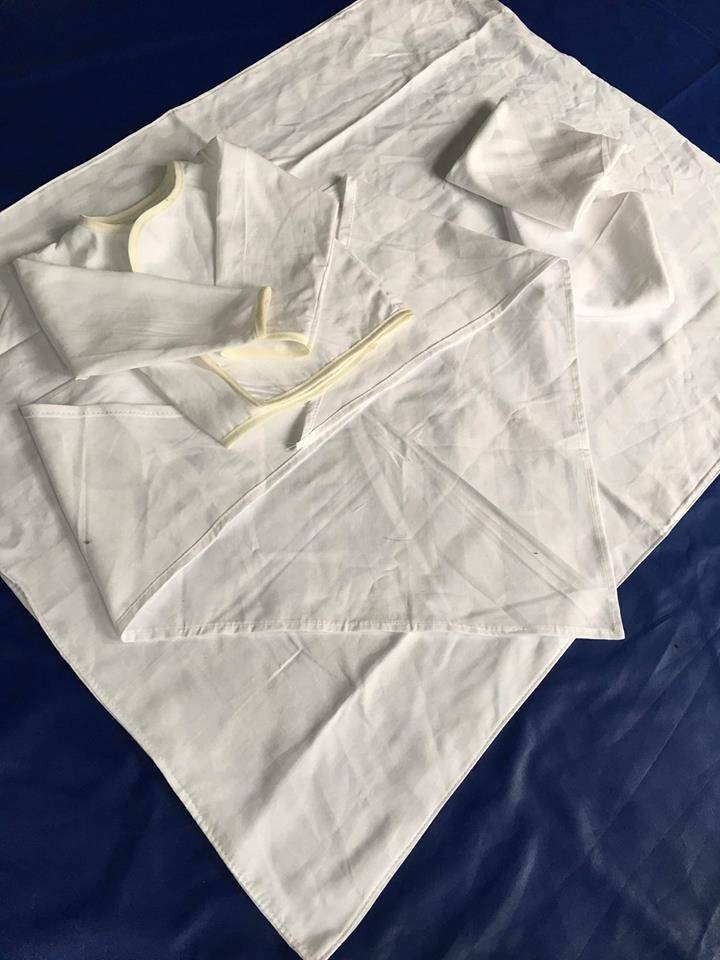
Stefan’s programmes very much depend on the strength of his global network of hotels and NGOs, which is the foundation of making his projects scalable. The success of his projects demonstrate the power of a network in which people have shared values and are working together towards a common vision.
L4L has evolved from its inception to meet the specific needs of individual local communities. A doctor in Vietnam contacted Stefan to discuss health issues surrounding new born babies and the lack of availability of clean swaddling clothes. With the help of his network, Stefan was able to organise a small team of disabled people to create kits for new born babies. Good quality clean bed linen donated from hotels is transformed into pajamas, swaddling clothes and reusable diapers with each new mother provided with two to three sets. These kits have been distributed to nearly 2000 mothers and help to keep the babies healthy and safe with better chance at survival from new born morbidity and mortality related issues. The small team of disabled people making these kits are now earning a sustainable living to support themselves.
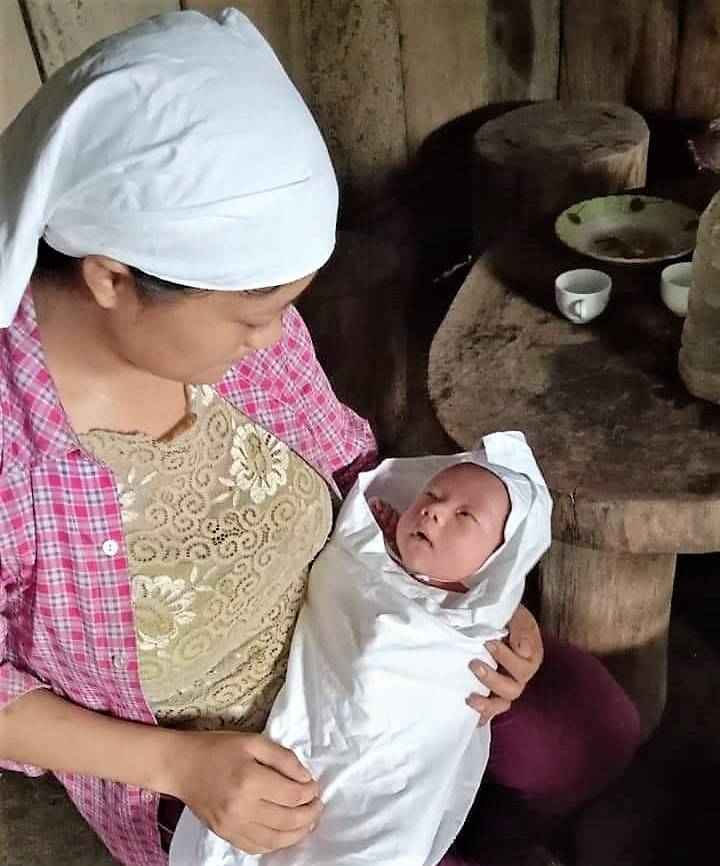
Whilst the global Covid-19 pandemic has been extremely challenging for many people, it has also created some opportunities. Not all lockdowns are equal, whilst some of us can stay at home comfortably, others who live in slums or rubbish dumps have nowhere to go and no means to earn an income. Reuters reported that in South Asia people were faced with the choice of buying food for their families, or buying a face mask. When Stefan read this report he quickly mobilised his network and L4L Face Mask programme was developed in response to the pandemic.
Research identified that 80 to 120 thread count bed linen was one of the top five best materials to make DIY face masks from in terms of filtration and breathability. When bed linen is made into a 2 ply mask, it filters 90% of viral particles. It is also a durable material which means that one mask can be washed and reused many times.
Fortunately, Stefan has an existing network of hotels happy to donate condemned linen along with established NGOs with access to local communities in need. As at 1 October this year, L4L Face Masks is operational in 12 countries, 31 cities and 64 hotels. The participating hotels have donated nearly 30 tonnes of linen, and 1.5 million face masks have been made and distributed.
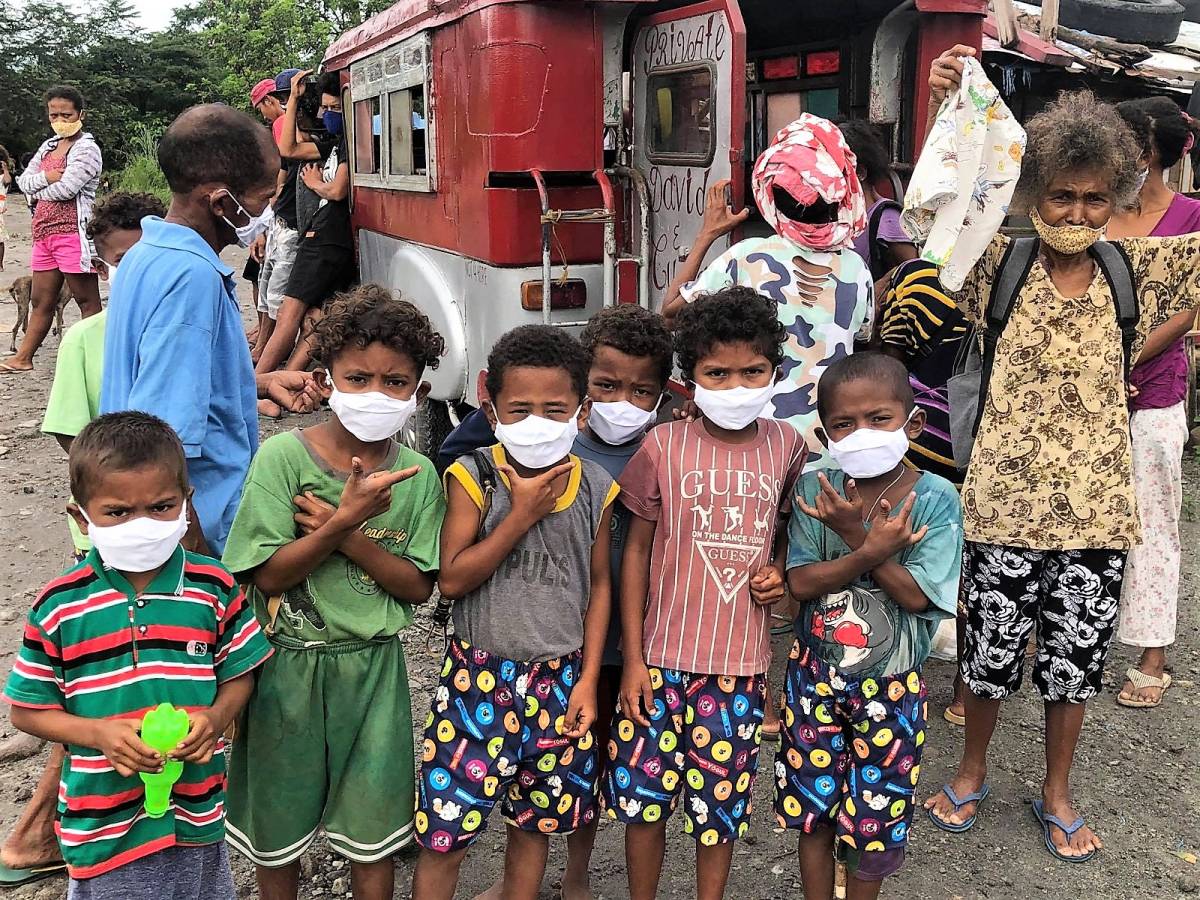
Never one to rest on his laurels, Stefan is acutely aware that more needs to be done. Although the impact of the pandemic may be easing for some of us, the people that Stefan is committed to helping, the forgotten and needy in the slums and rubbish dumps, still need access to face masks.
The journey continues. L4L will continue to evolve, from its beginnings of shrouds and stretchers, to generating sustainable income and providing life-saving face masks and new born kits, to identifying new ways in which condemned linen can support people striving to find a route out of poverty.
You can keep up to date with Stefan’s projects here: https://diversey.com/en/sustainability/corporate-social-responsibility-programs
Stefan is contactable by email at stefan.phang@diversey.com
IRENE MILLAR
Passionate about sustainability, Irene would like to hear stories from people in the travel industry with knowledge, dedication and insight, on how they make a positive difference to their local communities, habitats and environment through applying sustainability principles and practices.
ORDER HERE: fcowanmedia@gmail.com : Or go to Amazon: The Orange Sofa: Unicorn Eyes: Walking Home: Singapore Circuit Breaker or Zero Visibility - US$9.00 on line

